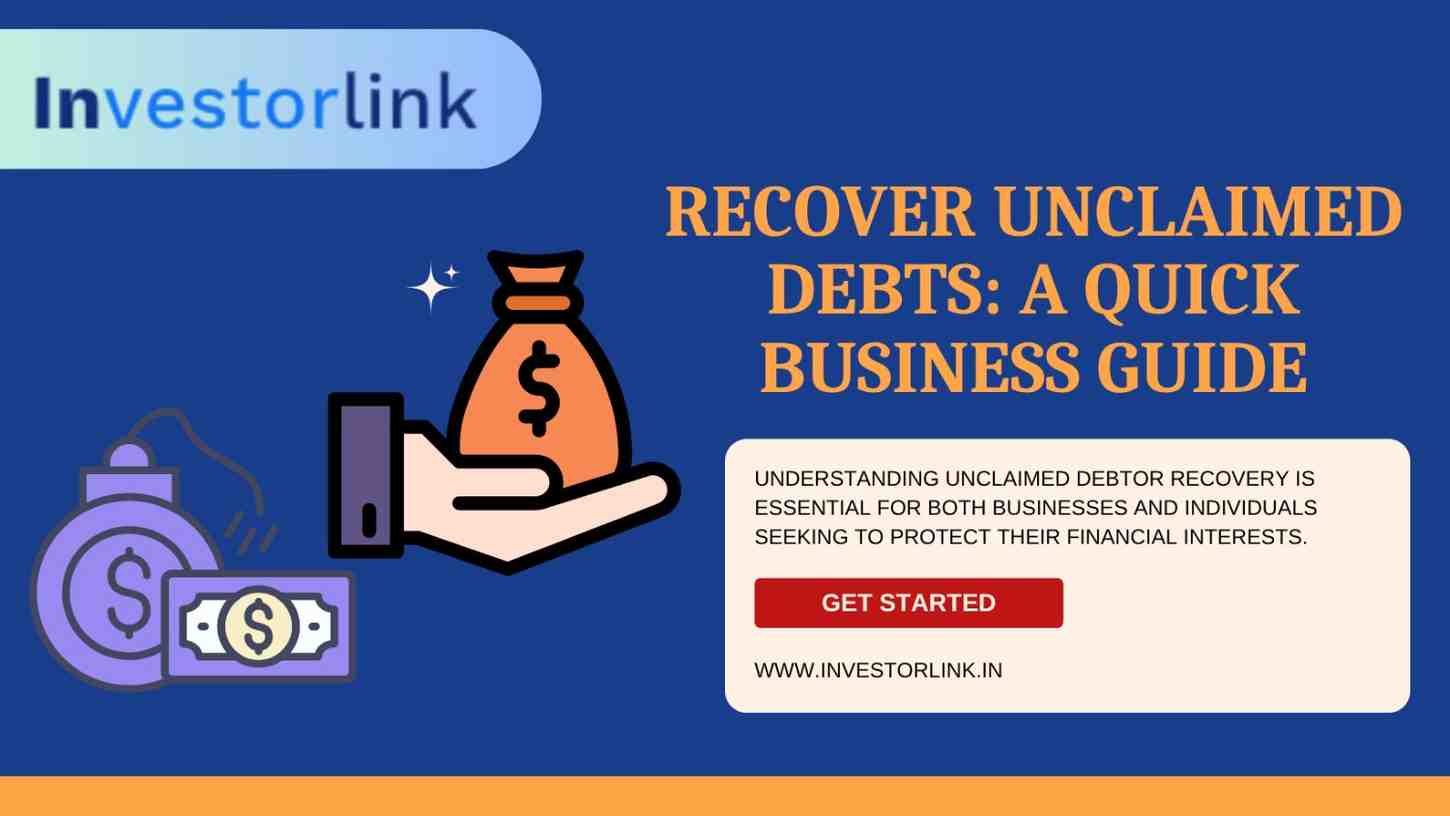


Learn how businesses and individuals can recover unclaimed debts efficiently with legal, negotiation, and professional recovery strategies.
In the fast-paced world of business, cash flow is king. Yet, one of the biggest challenges that businesses face is dealing with unclaimed or overdue debts. These unclaimed debts, if ignored, can negatively impact your financial health and disrupt growth plans. Fortunately, with the right strategies, businesses can recover these dues efficiently. This guide provides a comprehensive, step-by-step approach to unclaimed debtor recovery, ensuring your business stays financially healthy and operations remain smooth.
Unclaimed debts refer to money owed to your business by clients, customers, or debtors that has not been claimed or paid for a considerable period. This may include unpaid invoices, long-overdue loans, or pending payments from services rendered. These debts often accumulate due to oversight, poor follow-up, or disputes between parties.
While small overdue amounts may seem insignificant, unclaimed debts can accumulate into a substantial financial burden over time. Recovering them is not only essential for cash flow management but also for maintaining business credibility.
Understanding why debts remain unclaimed is crucial for preventing them in the future. Some common reasons include:
By identifying the root causes, you can adopt strategies that prevent debts from going unclaimed in the first place.
Recovering unclaimed debts requires a systematic approach that balances persistence, professionalism, and legality. Below are practical steps to help you recover dues effectively.
Keeping detailed records of all transactions, invoices, payment terms, and communications is the foundation of debt recovery. A well-organized system allows you to:
Use accounting software or CRM tools to automate reminders and generate reports on unpaid debts.
Often, a friendly reminder is enough to prompt payment. Start by sending:
Ensure your communication is courteous but firm, emphasizing the payment terms agreed upon.
If initial reminders fail, the next step is a formal demand letter. This should include:
A formal letter demonstrates seriousness and provides documented evidence if the matter escalates legally.
In some cases, debtors may face genuine financial difficulties. Offering a settlement or a structured payment plan can increase the likelihood of recovering at least a portion of the unclaimed debt. Negotiation tips:
If internal efforts fail, hiring professional debt recovery services can save time and increase success rates. These agencies have experience in negotiating with debtors and can handle complex cases, including international debts. Key benefits include:
Legal action should be the last resort, used only when all other methods fail. Depending on your jurisdiction, options may include:
Before proceeding, consult a legal professional to understand the costs, procedures, and likelihood of success.
While recovery is important, prevention is even better. Implementing these best practices can reduce the occurrence of unclaimed debts:
Leveraging technology can simplify and expedite debt recovery. Some useful tools include:
Using the right combination of technology and human effort ensures a smoother recovery process.
Recovering unclaimed debts is not just about reclaiming money—it’s about protecting your business’s financial health and fostering accountability among clients. By following a structured approach—maintaining records, sending reminders, negotiating settlements, and involving professionals when necessary—businesses can efficiently recover overdue payments while maintaining positive client relationships.
Moreover, implementing preventive measures and leveraging technology can reduce the occurrence of unclaimed debts in the future, ensuring smoother cash flow and sustainable growth.
Remember: Unclaimed debts may seem small individually, but collectively, they can significantly impact your bottom line. Act promptly, remain professional, and use a mix of persistence, strategy, and legal safeguards to recover what your business rightfully deserves.
FAQs
Q1: How long should I wait before considering a debt unclaimed?
Most businesses consider debts unclaimed after 90–180 days of non-payment, depending on contractual terms.
Q2: Can I recover debts without legal action?
Yes, most debts are recoverable through reminders, negotiations, and professional recovery services without resorting to courts.
Q3: Are debt recovery services expensive?
Costs vary, but many agencies work on a contingency basis, taking a percentage of the recovered amount, making it cost-effective.
Q4: Can unclaimed debts affect my business credit rating?
Yes, unclaimed debts can affect cash flow, impacting your ability to pay suppliers or creditors, which may indirectly affect your credit rating.
Q5: Is it worth pursuing very old debts?
It depends on the amount and effort required. Evaluate whether recovery costs outweigh potential benefits.
